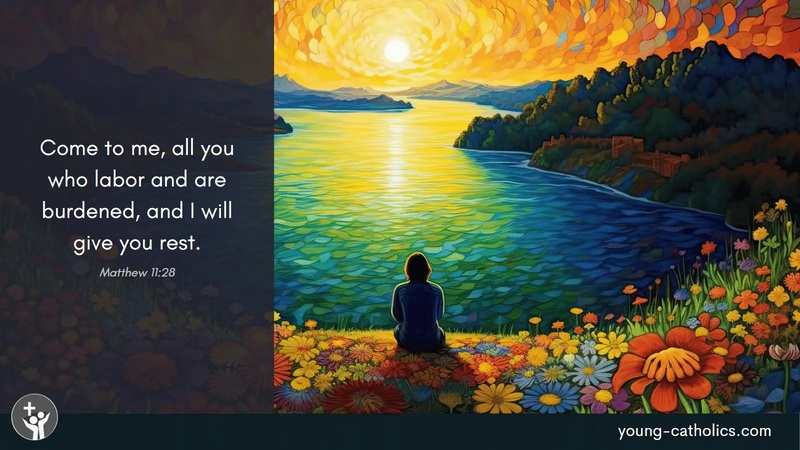By Nicholas Soellner
Special to The Message

Catechetical Sunday’s origins can be traced back to Jan. 12th, 1935, when, under the direction of Pope Pius XI, the Catechetical Office of the Holy See published “Provido Sane Consilio” (“On the better care and promotion of catechetical instruction”). From this document, several initiatives were to be undertaken:
“In order that the mind of the Christian people may be directed from time to time toward religious education, let a Catechetical Day be established in each parish…on this day, the Feast of Christian Doctrine is to be celebrated with as much solemnity as possible. On this occasion:
- The faithful should be called together in the parish church, and having received the Holy Eucharist, they should pray to obtain greater fruit from divine teaching
- A special sermon should be preached to the people on the necessity of catechetical instruction. Parents are to be told about their duty to instruct their children in Christian doctrine and to send them to the parochial catechism classes, being mindful of the divine command: "And these words which I command you this day shall be in your heart. And you shall tell them to your children... "
- Books, pamphlets, leaflets, and other material suitable for the purpose should be distributed to the people
- A collection may be taken up for the promotion of catechetical works
- In places where the scarcity of priests is such that the clergy themselves cannot satisfactorily perform the work of teaching Christian doctrine, the Ordinary should take active steps to supply capable catechists of both sexes to help the pastors to impart religious instruction in the parochial or in the public schools, even in the remote parts of the parish.”
Over the years, the third Sunday of September eventually came to be known as Catechetical Sunday.
This year’s Catechetical Sunday theme comes from the Gospel of Matthew:
“All things have been handed over to me by my Father, and no one knows the Son except the Father, and no one knows the Father except the Son and anyone to whom the Son chooses to reveal him. Come to me, all who labor and are burdened, and I will give you rest. Take my yoke upon you and learn from me, for I am gentle and lowly in heart, and you will find rest for your souls. For my yoke is easy and my burden is light” (Mt. 11:27-30).
Jesus makes these remarks after commending John the Baptist’s ministry to the crowds and condemning the cities where he himself had worked many miracles, but the people did not repent. At first glance, it seems like Jesus is a little all over the place. But he’s very intentional about how he has set things up here. First, Jesus lays claim to his unique role as the sole mediator between God and man. Next, he invites us to follow him, promising what we truly need. Lastly, Jesus reassures us that, despite his divine identity, he is always accessible. The phrase lowly of heart in Greek is meant here in a spatial sense, as in low to the ground. In a modern idiom, Jesus tells us he’s a down-to-Earth kind of guy.
When Jesus says, “All who labor and are burdened,” he knows he could have just said everyone and identified the same audience. But his invitation reaches us where we need it most - at the personal level. Rest is the gift of the seventh day, something God enjoys after his creation of the world (Cf. Gen 2:1-3). Jesus’ offer of rest not only alleviates our burdens (the Greek word used here for burden can also mean a sort of spiritual anxiety) but also invites us to share in the life of the Father alongside Christ.
The invitation to take Christ’s yoke upon ourselves seems a vague and intimidating proposition, certainly to folks like me who didn’t grow up on a farm! But Jesus makes this statement knowing full well that we all carry yokes of our own. It was commonly taught in the ancient Rabbinic schools that, in life, a person would choose between the yoke in service to the worldly concerns and the yoke in service to God. Jesus’ other teachings to seek first God’s kingdom (Cf. Mt. 6:33) and that one cannot serve two masters (Cf. Mt. 6:24) also follow this line of thinking. What a great consolation that God himself would take on flesh in order to walk alongside us, teaching us how to carry our own burdens and how to know, love and serve the Lord!
As we learn from Christ, we also are called to teach others as Christ taught. It has been said that the primary objective of the Holy Spirit is to recreate the life of Christ in every member of the Church. The Church is now Christ’s body on Earth (Cf. Col. 1:18) that carries the yoke alongside us. As a result, we can confidently say that sharing the faith and the burdens of others is an essential part of Christian discipleship. “But God has so composed the body…that there may be no division in the body, but that the members may have the same care for one another. If one member suffers, all suffer together” (1. Cor. 12:25-26). As we walk together towards this Catechetical Sunday, I ask that we heed the urgency and instruction of “Provido Sane Consilio” and pray for the Spirit to reveal to us the gifts entrusted to us by God to pass on the faith to others.
Nicholas Soellner serves as Program Manager for the Diocese of Evansville Office of Catechesis.
